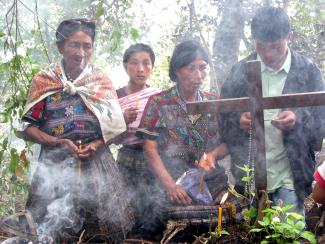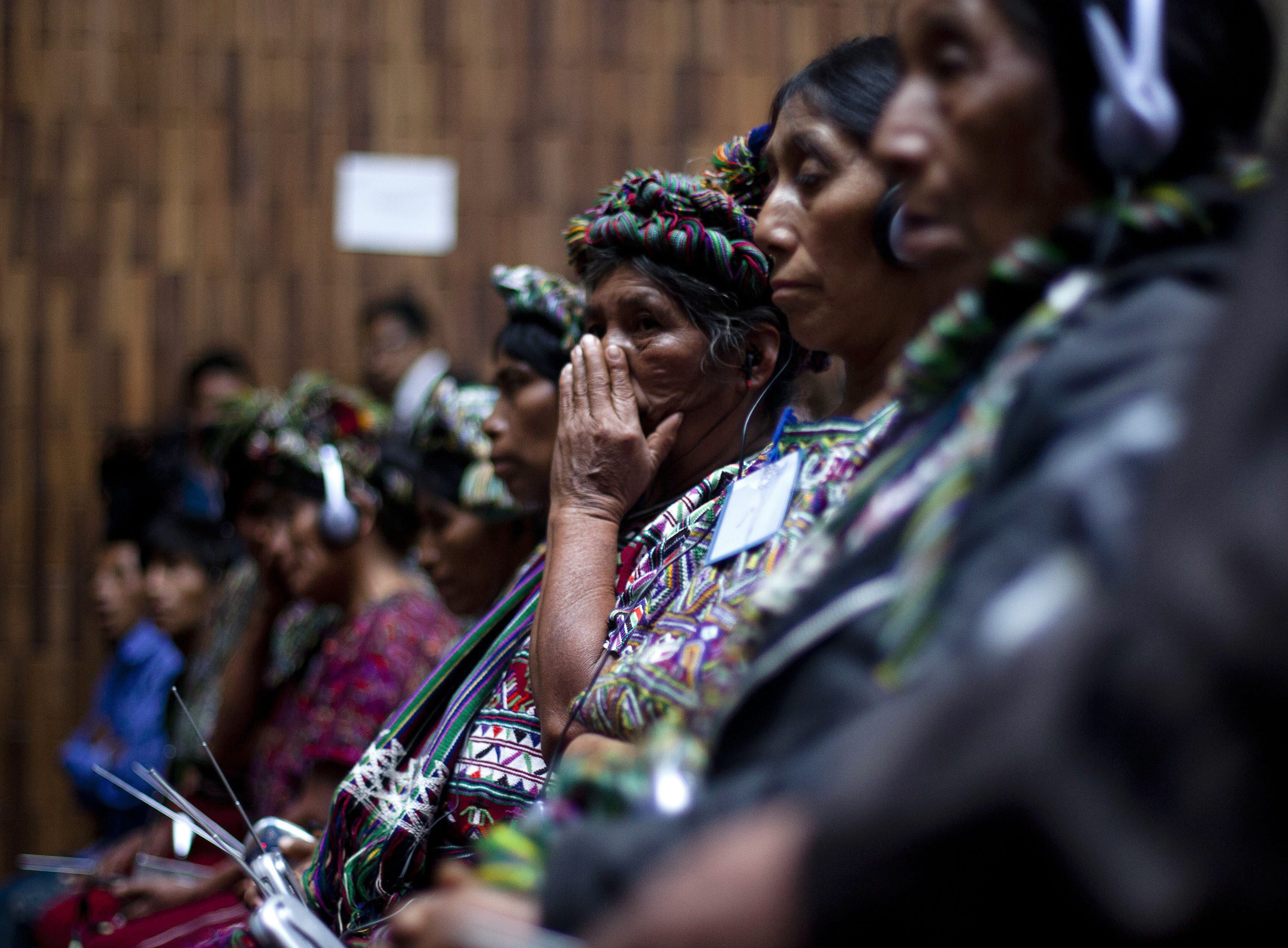Democracy
Justice delayed

Some people think anything they do is justified. And they assume they are untouchable. General Ríos Montt, former dictator of Guatemala, is one of them. During this small nation's long civil war from 1960 to 1996, bloodbaths were daily occurrences. Some 200 000 people were killed or disappeared without trace. Many of them belonged to indigenous communities.
At that time, the military were lords of life and death. Their scorched-earth strategy was meant to deprive leftist guerrilla groups of their base among poor peasants. Maya villages in particular were razed to the ground – by command of the very top.
In the early 1980s, General Ríos Montt was at the very top. In those years, many military dictatorships in Latin America argued they had to fight left-wing terrorists with no holds barred. Nowhere, however, so many people were massacred as in Guatemala. Human rights groups have long pointed out that killings of indigenous people were executed in a systematic manner and therefore met the criteria for genocide.
Nonetheless, it took one and a half decades before those responsible were put on trial. After dictatorial regime had ended, Ríos Montt – and many other members of the military – enjoyed immunity as a member of Congress. After he left parliament last year, the 86-year-old could be charged at last. After having been beyond the law for so many years, he was convicted for genocide by a court in Guatelmala. Even though the judgment was soon after overturned by the country's Supreme Court of Justice, it is a landmark. This sentence sent a ray of hope to all who demand punishment for former military dictators in other countries. In Guatemala, Rios Montt is to be put on trial again in 2015.
For a nation to trust its legal system, the judiciary has to act convincingly. After dictatorships, it is vital to end impunity. In Latin America, only Argentina managed to put those who were responsible for human rights violations on trial directly after the end of the regime. In 1985, only two years after the dictatorship, a sensational trial took place. The military junta as well as lower ranks were convicted for crimes against humanity. Amnesties followed later, but were annulled again.
In most of the other young democracies in Latin America, the military was too powerful and the judiciary too weak to quickly get trials under way. It seems, that the young democracies have gradually gathered enough strength to challenge the old networks of military and oligarchy. A new generation of lawyers and judges, supported by human rights organisations, are bringing formerly untouchable generals to court.
The rejoicing that the sentence against Ríos Montt triggered in Guatemala was healthy. People want to be able to say: "It took a long time, but at last, justice reigns." This doesn’t bring the dead back to life, but it helps turning a strife-torn society into a democracy. The decision by the Constitutional Court to re-start the case is disappointing, but there is still reason to hope that Ríos Montt will not get away unpunished in the end.
The past of President Otto Pérez Molina is controversial too. During the military regime, he acted as garrison commander in the Guatemalan army. There is evidence that he was present when massacres were perpetrated. He denies any involvement in human rights violations, and as head of state, he currently enjoys immunity. However, the verdict against Ríos Montt shows that his past may yet catch up with him as well.
It is gratifying that the top judges ordered the government to apologise to the victims of war crimes. It explicitly mentioned the Ixil-Maya community, which was subjected to systematic extermination. President Pérez Molina has agreed to comply.









